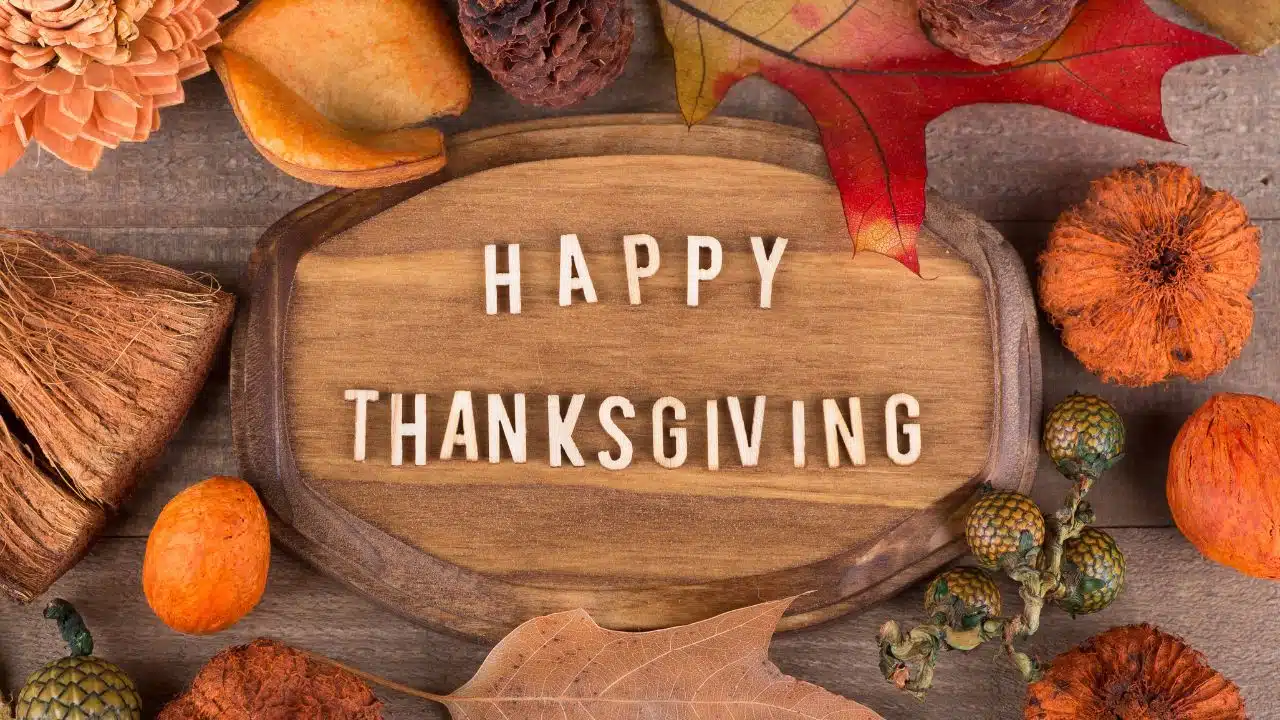As Halloween fades into the past and December’s winter festivities loom on the horizon, there’s one beloved holiday that bridges the gap: Thanksgiving.
Often celebrated with family gatherings, hearty meals, and cherished traditions, Thanksgiving offers an opportunity to pause and reflect on gratitude. Here’s everything you need to know about Thanksgiving 2024, its date, and the historical reasons it’s always celebrated on a Thursday.
When is Thanksgiving 2024?
Thanksgiving in 2024 will be observed on Thursday, November 28.
Why Does Thanksgiving Always Fall on a Thursday?
Thanksgiving is celebrated on the fourth Thursday of November each year. This tradition was formalized by President Franklin D. Roosevelt in 1939, during the Great Depression. Seeking to bolster holiday retail sales, Roosevelt moved the holiday from the final Thursday in November to the fourth Thursday, a decision that Congress later upheld in 1941 through federal legislation.
Before this adjustment, Thanksgiving had been celebrated on the last Thursday of November since 1863, when President Abraham Lincoln declared it a national holiday. Lincoln’s proclamation was issued amidst the Civil War as a way to unite a fractured nation and express gratitude for blessings, even in difficult times.
Why Do We Celebrate Thanksgiving?
Thanksgiving’s roots trace back to 1621, often romanticized as a harmonious feast shared between Pilgrims and the Wampanoag people. According to traditional accounts, the gathering was held to celebrate a successful harvest. However, historians have shed light on the inaccuracies and complexities of this narrative.
While it is true that colonists and members of the Wampanoag tribe dined together, the circumstances were far from the idyllic scenes depicted in many history textbooks. Reports suggest that the Wampanoag people were drawn to the gathering after hearing gunshots fired by the Pilgrims, who were engaged in rowdy celebrations. Fearing conflict, Wampanoag warriors prepared for battle but discovered it was a feast and eventually participated.
The event itself was not an official “Thanksgiving” celebration in the sense we know today. Thanksgiving, as a formal holiday, came into being much later and was largely shaped by political and cultural agendas.
How Thanksgiving Became a National Holiday?
Thanksgiving didn’t gain recognition as a nationwide holiday until 1863, over two centuries after the first Pilgrim-Wampanoag gathering. President Lincoln, influenced by writer and editor Sarah Josepha Hale, proclaimed the last Thursday of November as a day for gratitude and unity.
For decades, this remained the practice until Roosevelt’s 1939 adjustment to the fourth Thursday, which aimed to create a longer shopping season before Christmas. Since then, the fourth Thursday has become an enduring feature of the Thanksgiving tradition.
Modern Traditions: From Feasts to Parades
Today, Thanksgiving is much more than a day of gratitude. It has evolved into a celebration of food, family, and fun. Key traditions include:
- Turkey Dinners: The centerpiece of most Thanksgiving feasts, turkey symbolizes the bounty of the harvest.
- Football Games: Thanksgiving is synonymous with football, with the NFL hosting games that bring families together around the TV.
- Macy’s Thanksgiving Day Parade: A staple since 1924, this iconic parade in New York City features massive floats, performances, and a festive atmosphere.
Thanksgiving has also become closely associated with the start of the holiday shopping season, with Black Friday following immediately after.
A Time to Reflect and Celebrate
Thanksgiving 2024, falling on November 28, is more than just a day for indulgent meals or a prelude to holiday shopping. It’s a moment to cherish loved ones, acknowledge historical truths, and express gratitude for life’s blessings.
As we gather around the table, let’s not only celebrate tradition but also take time to reflect on the history, both complex and inspiring, that shaped this enduring holiday.




































